Роберт Бюттнер - Orphan's Destiny
Здесь есть возможность читать онлайн «Роберт Бюттнер - Orphan's Destiny» весь текст электронной книги совершенно бесплатно (целиком полную версию без сокращений). В некоторых случаях можно слушать аудио, скачать через торрент в формате fb2 и присутствует краткое содержание. Жанр: Боевая фантастика, на английском языке. Описание произведения, (предисловие) а так же отзывы посетителей доступны на портале библиотеки ЛибКат.
- Название:Orphan's Destiny
- Автор:
- Жанр:
- Год:неизвестен
- ISBN:нет данных
- Рейтинг книги:3 / 5. Голосов: 1
-
Избранное:Добавить в избранное
- Отзывы:
-
Ваша оценка:
- 60
- 1
- 2
- 3
- 4
- 5
Orphan's Destiny: краткое содержание, описание и аннотация
Предлагаем к чтению аннотацию, описание, краткое содержание или предисловие (зависит от того, что написал сам автор книги «Orphan's Destiny»). Если вы не нашли необходимую информацию о книге — напишите в комментариях, мы постараемся отыскать её.
Orphan's Destiny — читать онлайн бесплатно полную книгу (весь текст) целиком
Ниже представлен текст книги, разбитый по страницам. Система сохранения места последней прочитанной страницы, позволяет с удобством читать онлайн бесплатно книгу «Orphan's Destiny», без необходимости каждый раз заново искать на чём Вы остановились. Поставьте закладку, и сможете в любой момент перейти на страницу, на которой закончили чтение.
Интервал:
Закладка:
It looked like an old-fashioned clothes iron, squashed and with the handle cut off, a taupe wedge 128 feet long and just as wide, sprouting angled fins from its rear end.
My jaw hung open and my stomach churned. “Howard, that heap is just a dropship!” We had assaulted Ganymede from orbit in dropships identical to the one that now shrank as it sped down our runway in a moon-dust cloud. Dropships were gliders. This tub couldn’t take off! Hell, our own dropships hadn’t even brought us down successfully. Every one had crash-landed.
Howard patted my arm. “The original design was for a reusable space plane to shuttle down and up to low Earth orbit. It got shelved in 2001. The dropships had troop transport compartments in place of fuel tanks and engines. These ships are powered. This variant will carry fewer troops but it’ll take us up to the mother ship fine.”
Adrenaline tingled my fingers. That was just one more thing the Army told Howard the Intelligence Spook but hadn’t told us grunts. One more thing we couldn’t have revealed if captured. Operational security makes perfect sense but I still hate being lied to.
The relief ship reached the end of its run-out and pivoted to taxi back in our direction. As if to prove Howard’s point that it was powered, its engines gunned and our creaky ticket home churned dust as it rolled back toward us.
The Slug War had forced humankind to pick up manned spaceflight where it had left off back when cars burned gasoline, in the late 1990s. The seventy-year hiatus had given humanity budget enough to solve lots of social problems and time enough to pat itself on the back for achieving decades of world peace. Great accomplishments. They looked less great to an infantryman like me who had to ride into battle against the most destructive enemy in the universe in last-century antiques.
The ship rolled up to us and braked, nosing down on her landing gear, engines whining and heat still rolling off her skin. Mean midday temperature on Ganymede still only rose to two degrees Fahrenheit, so that warmth felt good. Block-lettered “UNSF” decorated the ship’s fuselage in United Nations powder-blue. Designs on the friction-scorched vertical stabilizers looked like a black-and-white squirrel with an S-shaped tail. Below it I made out the lettering “Pride of the Skunk Works.”
I pointed at the insignia and made head-scratching motions at Howard.
Howard cupped his hands around his mouth and shouted, “It’s a Lockheed-Martin Venture Star.”
The engines died.
Howard dropped his voice. “In the last half of the twentieth century, we hid an aircraft factory in the Nevada desert. The ‘Skunk Works.’”
I raised my eyebrows. “Nixon hid the defense plants from the hippies?”
Howard smiled. “No. From the Russians, during the Cold War. The hippies melted into the mainstream after Vietnam. The Venture Star died on the drawing board in the early 2000s. Amilitarism fizzled the Skunk Works.”
I nodded. I had spent my free time the last seven months completing downloaded correspondence courses toward bachelor’s and master’s degrees in military history. Americans made war only too well once we set our minds to it. But we resisted getting into wars, from Woodrow Wilson to Charles Lindbergh to Arnaud Welkie and the No-bots in the 2030s. And as soon as Americans could, we turned away from our wars to benign — or self-indulgent — pursuits. America had flipped between pacifist and gung ho for 150 years, now.
The relief ship shuddered on wheeled landing gear, fuselage ten feet above Ganymede, then hydraulics whined and a ramp unfolded from its belly.
The ramp reassured me that this ship represented a two-way ticket. Our dropships had been single-use assault vessels. The ships disembarked us by splitting apart like pea pods, blown open by explosive bolts, never again usable. A ramp was not only red-carpet treatment, it meant this ship was capable of flying us up to the mother ship and, in turn, home.
I don’t know who I expected to see descend the ramp but it was never Division Sergeant Major DeArthur Ord.
Ord’s Eternad body armor shone immaculate crimson, and he strode down that ramp as sharp and measured as machinery, helmet tucked under one arm, fingers wrapped precisely across the laser-designator bulge, embassy-duty style.
His hair, what little Uncle Sam let him show, was as gray as gunmetal and so were his eyes, unchanged since I first met him, as my senior drill sergeant in Infantry Basic.
Ord halted in front of me and saluted so crisply that his hand quivered. “Sir, Rear Admiral Brace extends his compliments.”
I returned the salute. Ord’s eyes would never do anything so unmilitary as to twinkle, so let’s just say he must have polished them. My heart leapt. Ord was actually proud of me. It wasn’t every day a drill sergeant rescued a smart-ass enlistee from the court-martial scrap heap, then saw that enlistee go on to command the division that won the most desperate battle in the history of the human race.
A Signal Corps holographer, who had followed Ord down the ramp, captured the scene for history with a Palmcorder.
It swelled my heart when I saw Ord stride down that ramp. But when I thought about it I cocked my head. Ord was plenty senior enough to be first down that ramp. Noncommissioned officers ran every army. Division sergeant majors sat at the left hand of God.
But Ord should report to the embarked-division commander, who would be an Army two-star. It sounded like Excalibur’s commander, a Navy-style rear admiral, was top dog, which was odd. But whoever was in charge, if that career officer was a political animal, and few officers made flag rank who weren’t, he would have led his troops down to Ganymede with holocams rolling. Admiral Brace had dodged a holo opportunity that carried no apparent risk. Why?
Ord continued. “As do the Secretary-General of the United Nations and the President of the United States.”
I smiled. “I bet she does!” The Ganymede Expeditionary Force had paid a terrible price but the President, our commander-in-chief, had to feel the same gratitude toward my soldiers that America and the world did.
Ord blinked. “He, sir.”
“Huh?” Not a general-like response but Ord’s remark made no sense.
“The President resigned before her term expired. It is President Lewis who sends his greetings.”
“Resigned?” No American President had resigned in nearly a century. The Palmcorder technician played his lens across us. The V-Star’s cooling fuselage creaked.
“Things changed while you were up here, sir.”
Beneath my helmet, hair stood on my neck.
FOUR
TWO DAYS LATER Howard and I again stood side by side on the Ganymede plains watching a V-Star fly. But this one was bound skyward. It jacked itself vertical on hydraulic struts angling from its belly, then Ganymede quaked as the V-Star’s engines lit and rumbled.
Howard shouted in my ear, “That’s fourteen, Jason.”
The most expensive hundred miles in the universe are from dirt to low planetary orbit. Ganymede’s gravity was more like the moon’s than Earth’s, but these V-Stars still packed lots of fuel. That meant there was room for only fifty GIs in each upship. Gliding down without engines or fuel tanks seven months ago, the same-size air frames had carried four hundred troops each.
Munchkin and Jude had ridden upship number one, along with the other medicals. As CO, I waited for the last ship off the rock, upship number fifteen. Howard, Brumby, and a half-dozen staff, stoop-shouldered from potato-vodka hangovers, waited with me.
I was younger than most of them and at least as fond of getting zogged. But I had hoisted one cup with them, then excused myself like a good CO, so they could party like it was 2099 while I sacked early. Command is sobering. Literally.
Читать дальшеИнтервал:
Закладка:
Похожие книги на «Orphan's Destiny»
Представляем Вашему вниманию похожие книги на «Orphan's Destiny» списком для выбора. Мы отобрали схожую по названию и смыслу литературу в надежде предоставить читателям больше вариантов отыскать новые, интересные, ещё непрочитанные произведения.
Обсуждение, отзывы о книге «Orphan's Destiny» и просто собственные мнения читателей. Оставьте ваши комментарии, напишите, что Вы думаете о произведении, его смысле или главных героях. Укажите что конкретно понравилось, а что нет, и почему Вы так считаете.

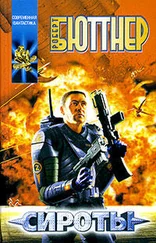

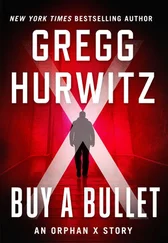
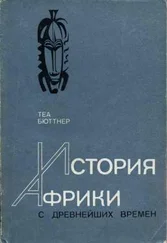
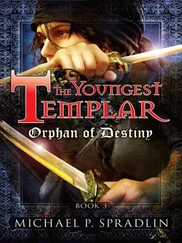
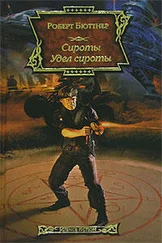
![Дэн Бюттнер - Где живет счастье [Правила жизни самых счастливых людей планеты] [litres]](/books/395574/den-byuttner-gde-zhivet-schaste-pravila-zhizni-samyh-thumb.webp)



